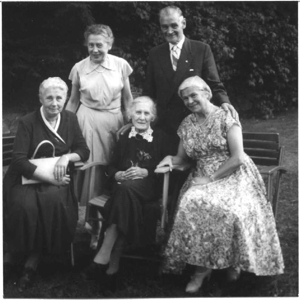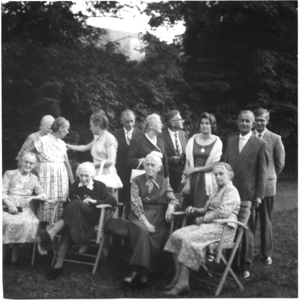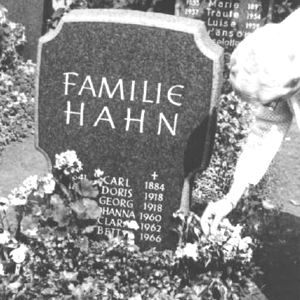After the war - Oma Hahn
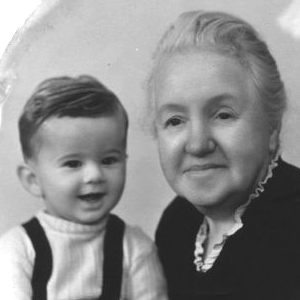 |
Oma Hahn en L.C.G. Hahn b. 8.11.46. Photo 8 Nov 1947. |
After Grandpa Georg’s death, Oma Jo Hahn-Aarsse was at first not allowed to return to the Netherlands because she was German. After three weeks of talking, she got permission. In the Netherlands, she immediately applied for naturalisation.
In the house on Francois Valentijnstraat in The Hague, Theo Gerhard also lived with the Hahn-Aarsse family, because there were better schools in The Hague than in Elspeet. When Oma Hahn had to go to Germany, Aunt Jet came to The Hague to look after the family and her father, until the Spanish Flu broke out in Elspeet.
That was a minor disaster. Nobody could cook. Grandpa Aarsse went to work, and the family ate from the soup kitchen, except on the day the adjuster came, Miss Teune. There was a maid in the house, a Belgian refugee, but she didn’t understand cooking either.
At that time, Auntie Do contracted pleurisy and had to lie down for three months. In December, she was allowed back to school and worked hard to pass her transition. She also had to be accepted into the German Church. That meant she had to memorise many Psalms and hymns and also the catechism, all in German. By April, after she had transferred, she was overworked. When Oma came to bring her a scrambled egg one morning, she fell asleep and woke up with the scrambled egg in her hair. Oma sent for the doctor who diagnosed tuberculosis. Aunt Do was sent to Elspeet where she was nursed for four months in a garden shed in a pine grove with Uncle Guus and Aunt Jet Gerhard-Aarsse.
Every Sunday morning, Oma went to Sunday school with the children. Aunt Do would wear her button boots and she always wore a hat and gloves. That was the way it was supposed to be. She was once sent home from the 4th grade for not wearing a hat … “In summer, the girls wore hats of English broderie and had aprons on with stiffeners. Aunt Do was also at singing lessons. During the performance, she wore white gloves and white ajour stockings and white glacé shoes. At singing lessons, they sang songs and cantatas, including by Catherine of Rennès and sometimes French and German songs.
Aunt Do also had piano lessons. It went like this. Next door to them lived the Erlée family. The eldest son was at the agricultural school, the eldest daughter at the nursery school of the Hague Society. The youngest daughter, Marie’tje, was between Auntie Do and Jetje in terms of age. The Erlée family had an old lady in the house, from a very good family, who had become very poor and now had to earn money by selling tea and giving piano lessons. Theo and Lou also had lessons (Grandpa Louis had violin lessons), but they probably found it rather tedious so it must not have lasted long.
Grandpa Aarsse was a very sweet man. Grandpa Georg Hahn was very strict. He had a great sense of duty, but he asked the same of others.
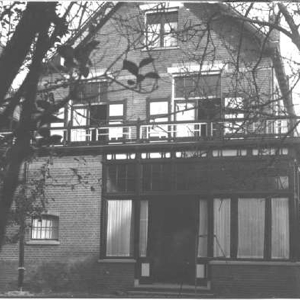 |
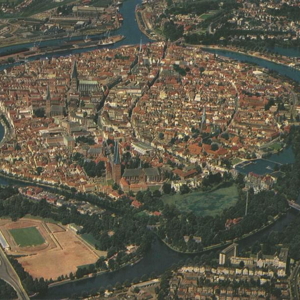 |
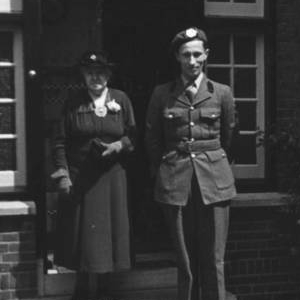 |
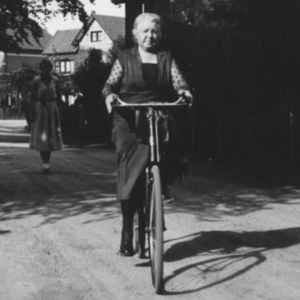 |
|---|---|---|---|
| Oma Hahn House in Apeldoorn (back) | Lübeck. Postcard from Paul & Jet to Joke, 1986 | Aalsmeer ‘t huis v.d. bride! [Oma Hahn with ?] | Oma Hahn. [reverse reads: “B.xC.”] |
Oma Hahn — Memoir
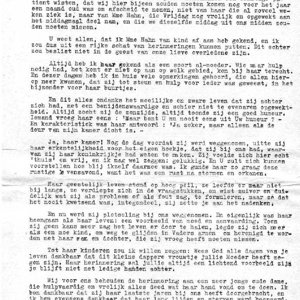 |
Oma Hahn’s memoir [source unknown] |
Little could we have suspected on New Year’s Eve, when I recalled for you the Year 1959, and we knew in the infirmary a serious patient, that we would have to meet here even before the year was a month old to say goodbye, not to her who has been ill for so many weeks, but to Mme Hahn, who was still happily and cheerfully partaking of the midday meal on Friday, and whom we would have to miss from our midst that very afternoon.
You all know that I have known Mme Hahn from childhood and could therefore draw from a rich treasure trove of memories. This, however, would definitely not be in the spirit of our dear deceased.
Always I have known her as a kind of all-mother. Whoever needed help, no matter in what field, could turn to her. And these days I have heard many comments in the house, which all boiled down to the fact that she had been a support and help for everyone, especially her neighbours.
And all this despite the difficult and hard life she had left behind, with an enviable and almost unmatchable cheerfulness. Always looking for the sunny side, she was always in a good mood. Someone once asked her: “But don’t you ever lose your temper? - Her answer was characteristic: “Yes, but only when the door to my room is closed. -
Yes, her room! The day before she was taken away, she expressed her gratitude for the little corner she had with us, which she had managed to make into her little kingdom. Here she felt really “at home” and free, and I may say happy. And you can imagine how happy that made me. I so gladly granted her this peaceful 1st vens evening, for it was a calm after storms and hurricanes.
Her spiritual life was at a high level, she did not live by it, she immersed herself in the issues, and knew how to formulate purely and clearly what she saw as a problem or a mistake, but in such a way that it was never hurtful, on the contrary, she made you think.
And now she was suddenly taken away from us. And in fact, her passing was like her life: an example of courage and acceptance. When she no longer saw a chance to make it through life, she lay down like a tired child, to slip into Father’s arms to be reunited with her husband and daughter, whom she had to miss at an early age.
To her children I would like to say: be grateful to God all the days of your life that this brave little woman was allowed to be your Mother. Her memory will always be a shining example to you, you will not be left empty-handed.
We for us retain the memory of a very young old lady, who helpfully and cheerfully did whatever her hand found to do. I am grateful that she spent her last years with us, and I am also grateful that she was spared long suffering and death. May that too be a comfort to you.

